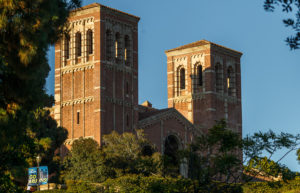The UC is considering transitioning all its campuses to a common semester calendar – but some faculty members are concerned about costs, workload and a lack of staff input.
The proposal is being developed by the Academic Planning Council Workgroup, a group formed by UC Executive Vice President and Provost Katherine Newman and UC Academic Senate Chair Steven Cheung. The APC workgroup consists of 28 members – including members of the Academic Senate, administrators and students across the UC system – and is researching the implications of a calendar change.
The APC workgroup began to research the logistics of a potential calendar shift last fall and released a 20-page summary report for community feedback.
A UC Office of the President spokesperson said in an emailed statement that semester systems are the standard across the country and added that a shift to this system would better align the UC with California community colleges, California State University and universities within the Association of American Universities. He also said the UC is still in the process of exploring this change.
“Converting to a common semester calendar would also simplify transfer from community colleges to UC, support cross-campus enrollment, and could create better internship pathways for students and new research and collaboration opportunities for faculty,” the spokesperson said in the statement.
The report outlines key considerations – including cost, workload and student success – as well as presents four calendar options: adopting a UC-wide common semester calendar, implementing a common quarter calendar, adjusting the current quarter system with earlier start and end dates or maintaining the existing mix of calendars.
Currently, UC Berkeley and UC Merced – alongside some UC Davis graduate programs – use the semester system. The other UC campuses run their undergraduate teaching on the quarter system.
To evaluate the advantages and drawbacks of each model, the workgroup reviewed 90 questionnaire responses from campus representatives and over 200 emails submitted to the group, according to the UCOP website, which also said the APC workgroup was accepting community feedback until May 30.
Miloš Jovanović, the vice chair of the UCLA Faculty Association, said the proposal does not fully account for the increased labor and staffing needs involved in converting to a semester system.
“This effort seems rushed,” said Jovanović, an assistant history professor, in an emailed statement. “It has been happening without substantial input from faculty or staff, the people (who) would bear the brunt of a change to semesters.”
The document said a systemwide semester calendar could better align the University with the California State University and California Community College systems, while also providing opportunities for deeper learning, improved academic recovery and expanded access to internships.
It also highlights, however, potential drawbacks – including substantial financial costs and possible negative impacts on student success, such as an inability to provide sufficient advising support during the transition.
Transitioning the seven campuses from the quarter system to the semester system is estimated to cost between $290 and $370 million, according to the APC workgroup report.
Much of this would go toward IT upgrades, curriculum redesign, expanded advising and administrative adjustments, according to the report.
UCLA alone is projected to face up to a $77 million cost in the first year of the change, Jovanović said in the statement, adding that implementing a semester system across the UC would require faculty to create entirely new syllabi and reduce their research time.
“This transition is being pushed from up top very quickly without meaningful consultation with faculty,” he said.
Alan Fiske, a professor of anthropology, echoed these concerns, saying that switching all UC campuses to semesters could reduce faculty time for research and personal commitments – especially if teaching hours increase without adjustments elsewhere.
“I love teaching, but the more teaching I do, the less time I have for research,” Fiske said.
Fiske added that he was concerned about how teaching responsibilities would be allocated under a semester system, given that current course loads vary widely across departments. He said he currently teaches four 10-week courses per year on the quarter system. If faculty were expected to teach the same number of courses under semesters, that would mean significantly more time spent in the classroom overall, he said.
Any attempt to reduce course loads to avoid this shift could lead to a one-third drop in available classes in some departments, limiting options for both students and faculty, Fiske added.
Tamara Levitz, a professor of comparative literature and musicology, also said many professors are concerned the semester system will negatively impact research opportunities and syllabi.
“People are very worried about many things about this proposal,” she said. “If we go to semesters, that would change opportunities for research for professors.”
Levitz also said she went to a systemwide hearing with the Academic Senate and found that the process is less well-defined than she had expected, adding that many faculty members are worried about the consultation process.
“I went because I had been hearing we’re not being asked – and then some people seem informed and some people don’t,” Levitz said. “It’s a larger problem of consultation … not always happening as it should.”
Levitz added that the process should seriously consider the input from faculty, staff and students, as a large-scale shift would alter the education students are receiving.
Fiske also said the proposal was developed without meaningful feedback from faculty, adding that there was no systemwide faculty senate committee or campus-level consultation on the issue.
Jovanović said he finds the proposal especially concerning given ongoing hiring freezes, research funding cuts and benefit reductions.
“It’s easy to make it seem like a good idea if you don’t consider the work it would actually take,” Jovanović added in the statement.




Comments are closed.